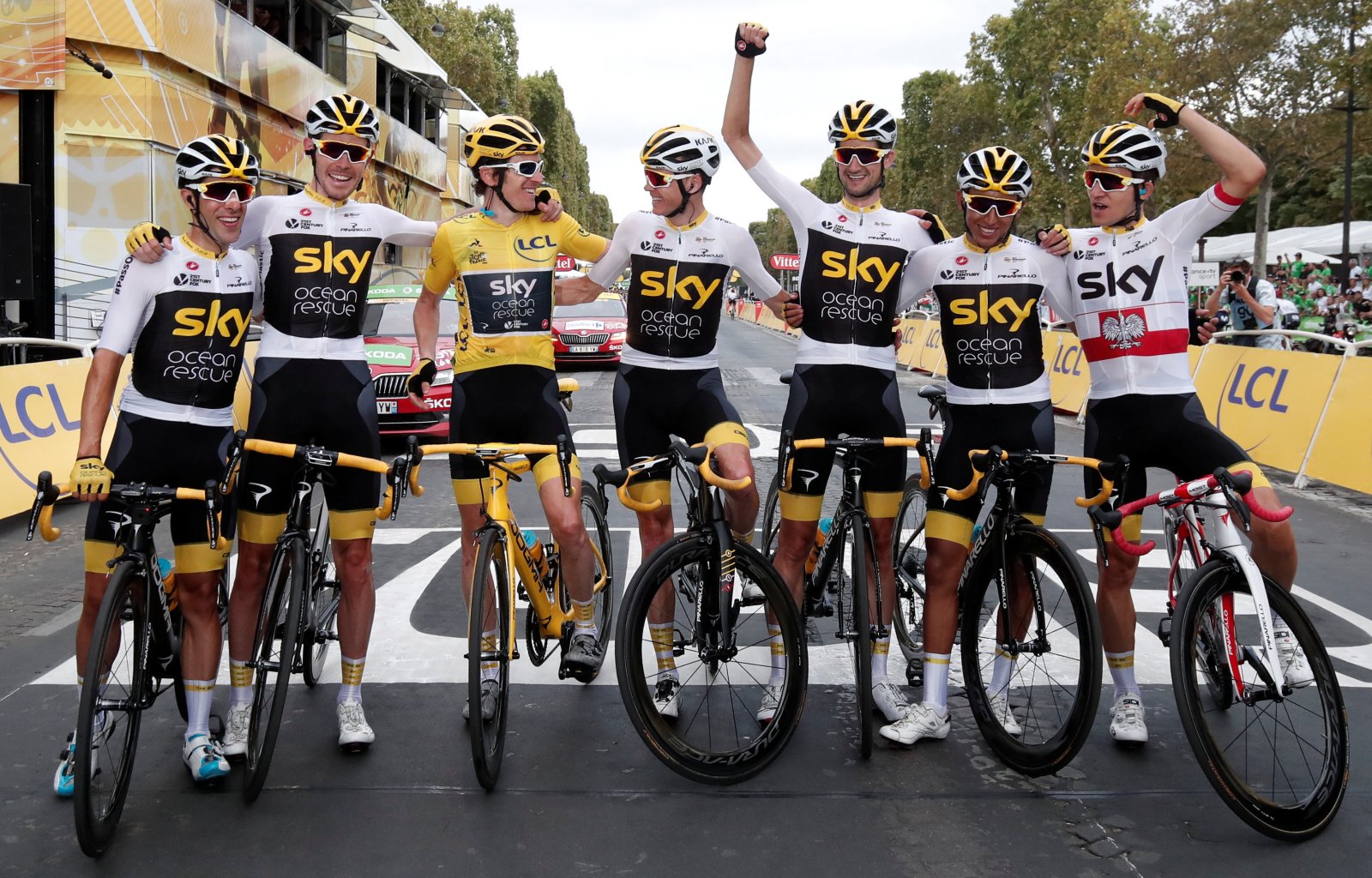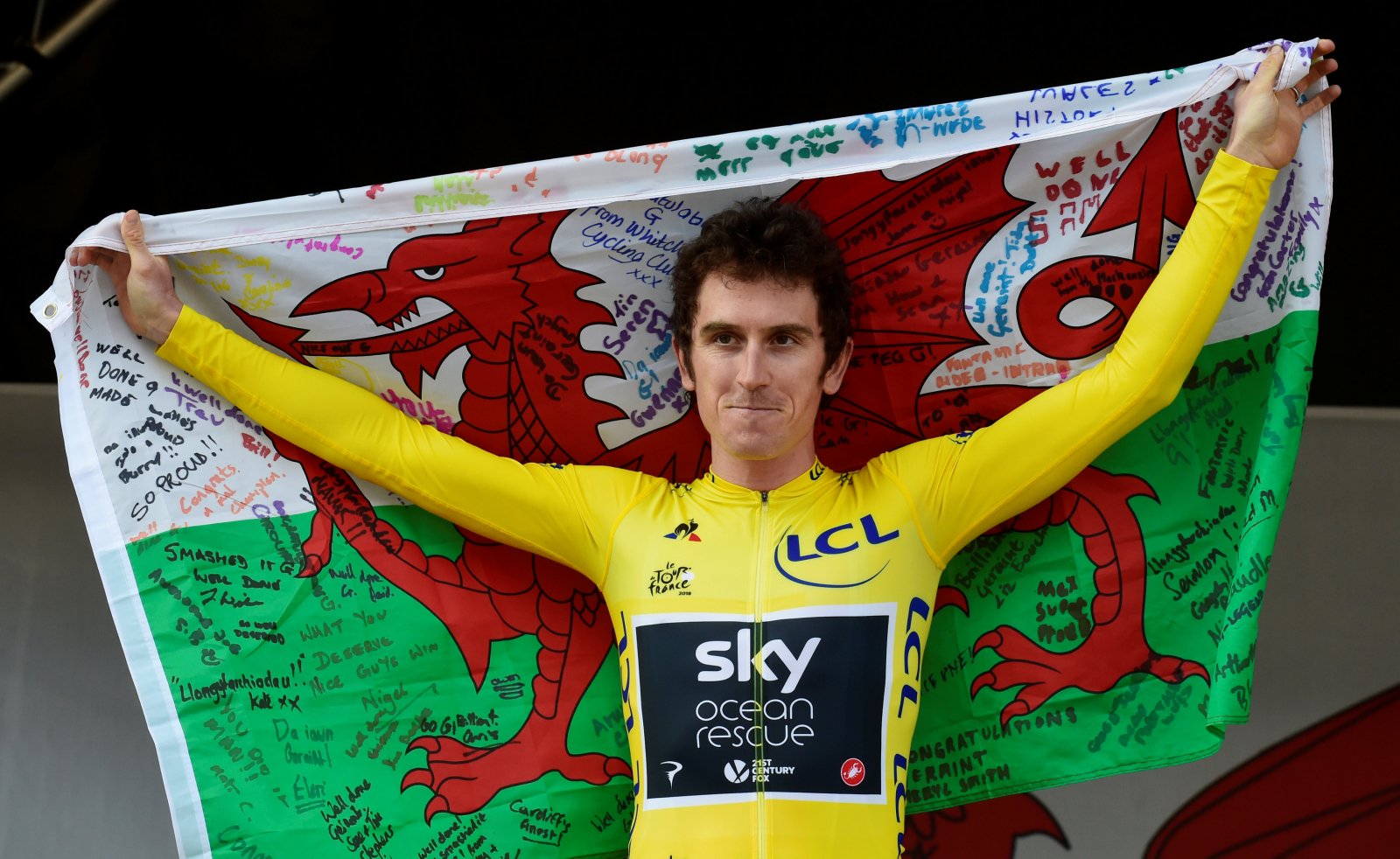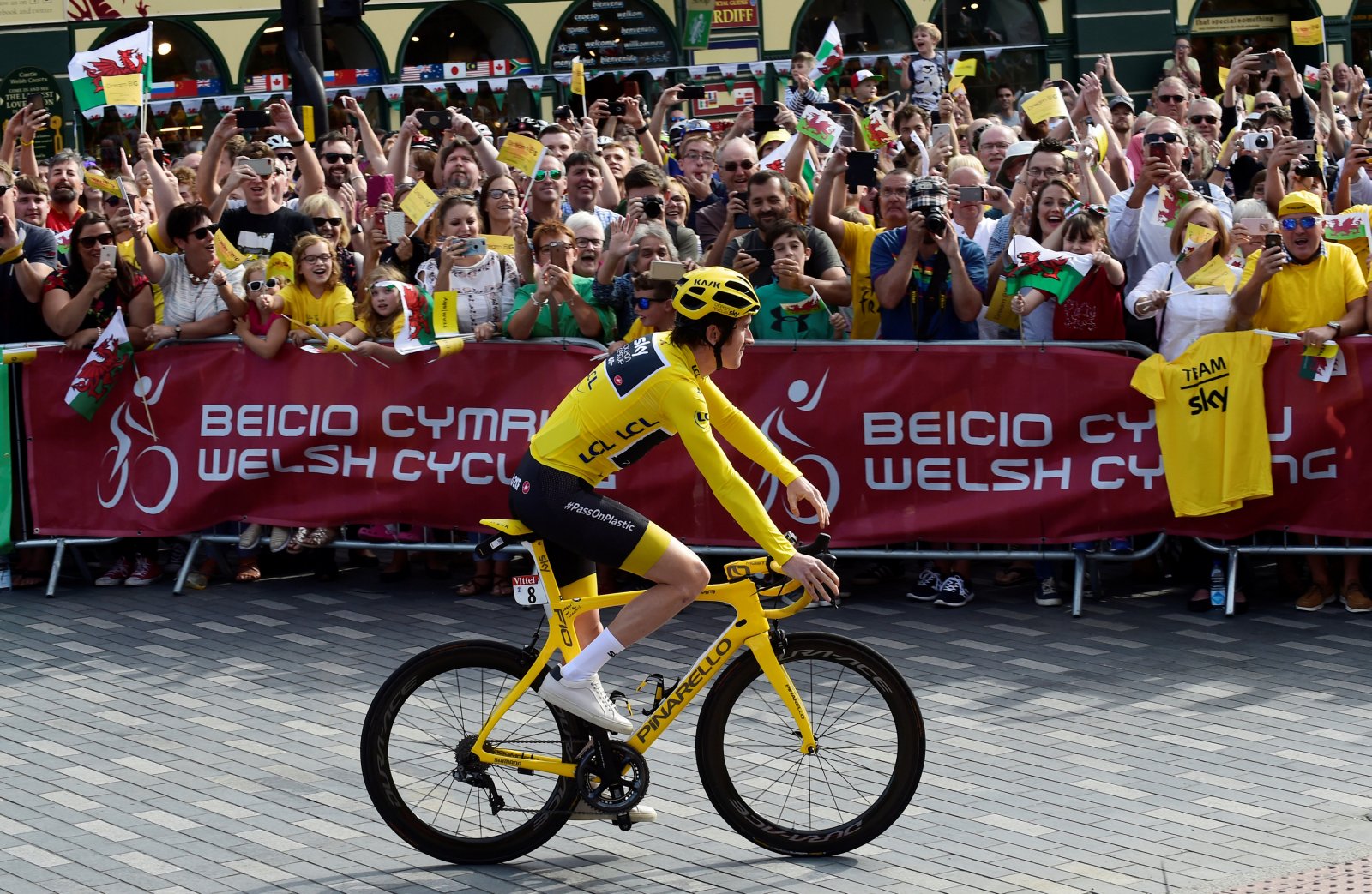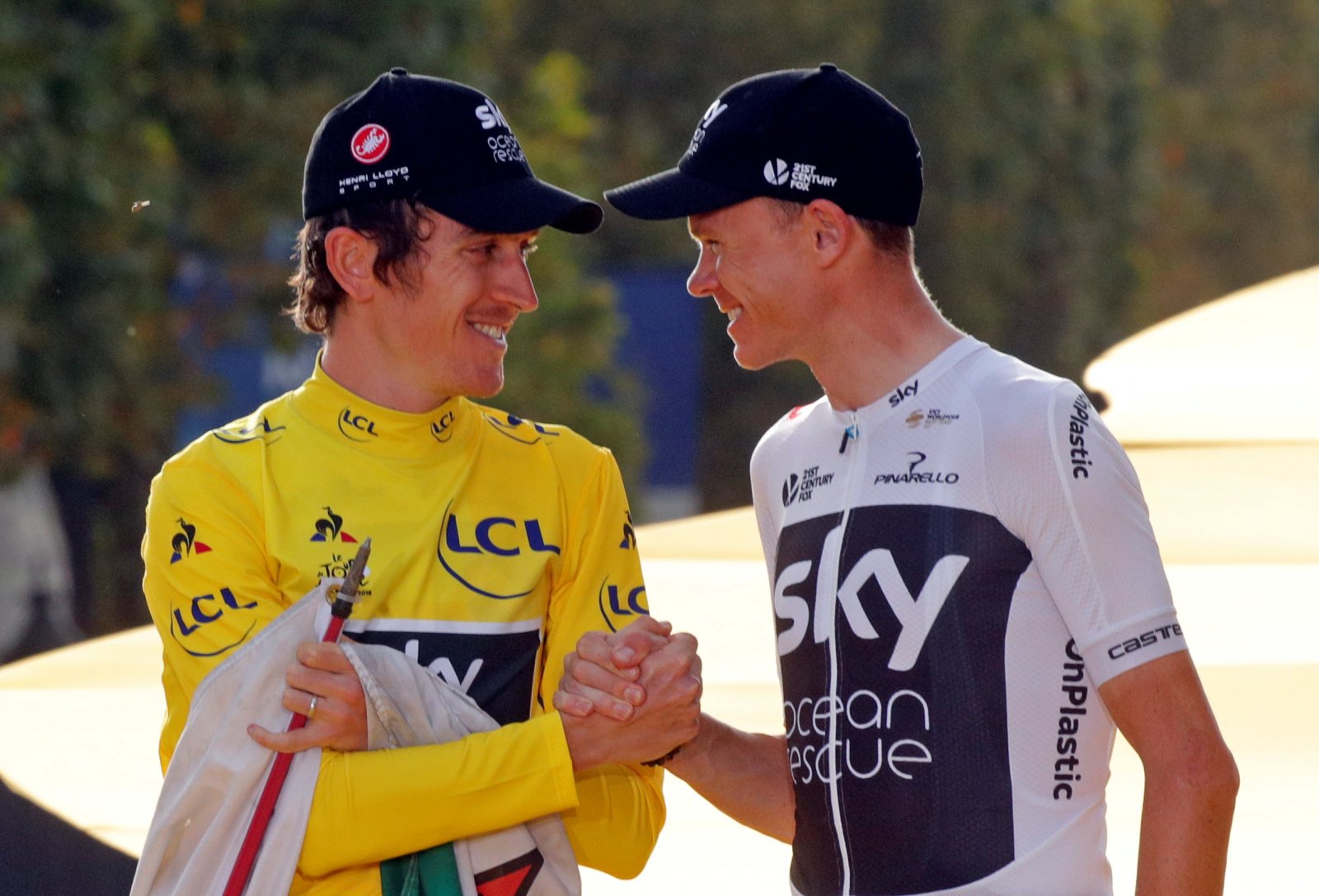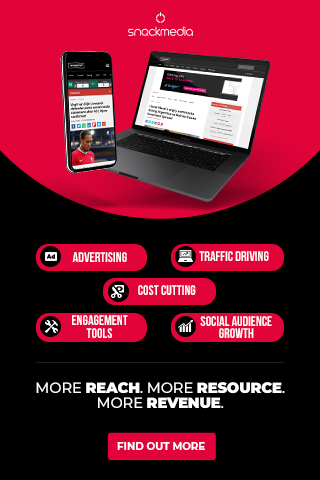How openness to partnerships is a pillar of Team Sky’s continued success
Every year, new technologies are revolutionising sport. From advances that aid strength, conditioning and nutrition to new media trends that change the way we consume our favourite sports, everything is always moving forward.
One sport where this battle to keep up has always been raging is cycling, where the romanticism of the open road is forever juxtaposed with advancements in technology and engineering.
That relationship between athletic ability and modern technology goes to the heart of the sport itself. Tech is built into a discipline which, at its heart, is a race against gravity and wind resistance played out on machines. A well-used piece of technology goes a long way, and it always has done.
The winners of five of the last six Tours de France, Team Sky, are world renowned for their efforts to integrate the best-fitting technology into the team’s work processes. The impact of which has seen even the squad’s nominal second rider, Geraint Thomas, wear the Yellow Jersey in Paris at the end of this year’s Tour, with Chris Froome on the podium too.
“The only sustainable competitive advantage that you can maintain is to learn faster than the opposition,”says Scott Drawer, Head of Performance Hub, Team Sky. “So the speed with which we can adapt is something that we pride ourselves on.”
In order to adapt in the modern world, you need to be at the cutting edge, but doing that is harder than it looks.
During this year’s victorious Tour de France campaign, Sky worked with connectivity solutions company Dejero in one example of how Sky’s attention to detail coupled with their willingness to partner with other companies gives them a competitive advantage.
“When you have TV coverage, you have a satellite system with antennas and you’re trying to connect low frequencies,” explains Drawer, “ and it’s notoriously poor in France. So what this Dejero box allows us to do is create this blended connectivity locking onto all the mobile networks where we can pick up, say, Eurosport coverage.”
“The difference between what we’re able to pick up versus TV is that you have much bigger delays on TV – so it could be that what happens in real time isn’t on your TV until 30 second later. But the footage that we’re able to connect to via the Dejero Gateway means we’ll get a much smaller delay there too. So that’s one of the reasons it gives us something of a competitive advantage in essence, we have much less delay and much greater probability of getting some coverage.”
That all allows Sky’s behind the scenes staff to aid the team racing out on the course in real time, understanding the state of the race and knowing when to attack, when to defend and when not to panic about a breakaway that’s appearing to gain time out in front.
But crucially, this is an example where Team Sky have shown that they have their finger on the pulse. When it comes to new products that tech companies and startups are producing, Sky seem to know what’s out there, and appear to be thinking about how that can be used to their own advantage.
“Technology provides a foundation for everything that we do and we’re always trying to evolve and develop that,” says Drawer. And whilst they’re not the only ones trying to do that, they’re a great example of what can be achieved when teams are open to partnerships.
“One of my roles is to sort of act as a chief scout: we connect a lot with startups, with venture capitalists, with all those types of groups where people are investing in sports tech and are aware of what’s going on. So sometimes we are very specific in that we’re looking for a solution to a particular problem we have, and other times we’re looking out for idea we haven’t thought of – maybe someone’s going to identify a problem we didn’t even know we had.”
That can be something as small as an acceptance that there may be a way in which the team’s processes can be streamlined in some small yet meaningful way, or it can be just another way of communicating better among the staff.
“We use a lot of app technology to communicate. When we’re in a race we use a product called VeloViewer, and a lot of our sport directors and tacticians on race day use that to track what’s going on in realtime. So they know the terrain, they’ve already done their scouting and they use all that to share information as well.
“We have a philosophy where, because there are 80 staff working at Team Sky across many different roles, we encourage everybody to constantly look for new ways to do things. Our starting point is always to stay connected to the outside world, to use their network to stay ahead of what’s going on.”
Just knowing what’s out there is a tough task. It’s why football clubs are running hackathons to find new partners to work with or new solutions to their problems. But Sky have proved you don’t even have to go that far if you’re already aware of what’s going on in the market. The fact that their day-to-day processes include using the likes of VeloViewer, which uses Strava data and is available to any cyclist who wants more insight into their own performance, shows how repurposing existing technology or resources is a tool that can help even the most elite of sports teams.
“We quite systematically connect to various groups across Europe, sports tech hubs, sports tech groups like Hype just to get a good feel on what’s going on,” says Drawer. “Sometimes I’m a panel member on these events or competitions so that we can get a good feel of what’s happening. We’re quite proactive in how we do that because we do accept that we just cannot know everything that’s going on at any point in time and we’re always looking for ways we can improve how we work and operate.”
And as new companies continue to improve the technological offering that teams have available to them, keeping on top of what’s out there is a full-time job in itself. And Sky are showing the value of taking that seriously.
About author
You might also like
France’s Top Basketball League, LNB, Selects Sportradar For all-encompassing Rights Deal
Sportradar, a leading global provider of sports data intelligence and sport entertainment solutions, today announced a comprehensive extended agreement with Ligue Nationale de Basket (LNB). The new agreement covers data
Nielsen Sports predicts the most watched Cheltenham Festival in ten years, boosting sponsorship values by up to 25%
Nielsen Sports has forecast that the 2021 Cheltenham Festival will receive its biggest viewership in a decade Potential for a 25% jump in sponsorship value expected due to an increased
Royal Parks Half Marathon Creates Unparalleled Digital Running Experience to Raise Money for Charity
Unique event with visual and audio cues from the Royal Parks Half course Special premium medal and events bag Guaranteed entry to a future Royal Parks Half if fundraising over

